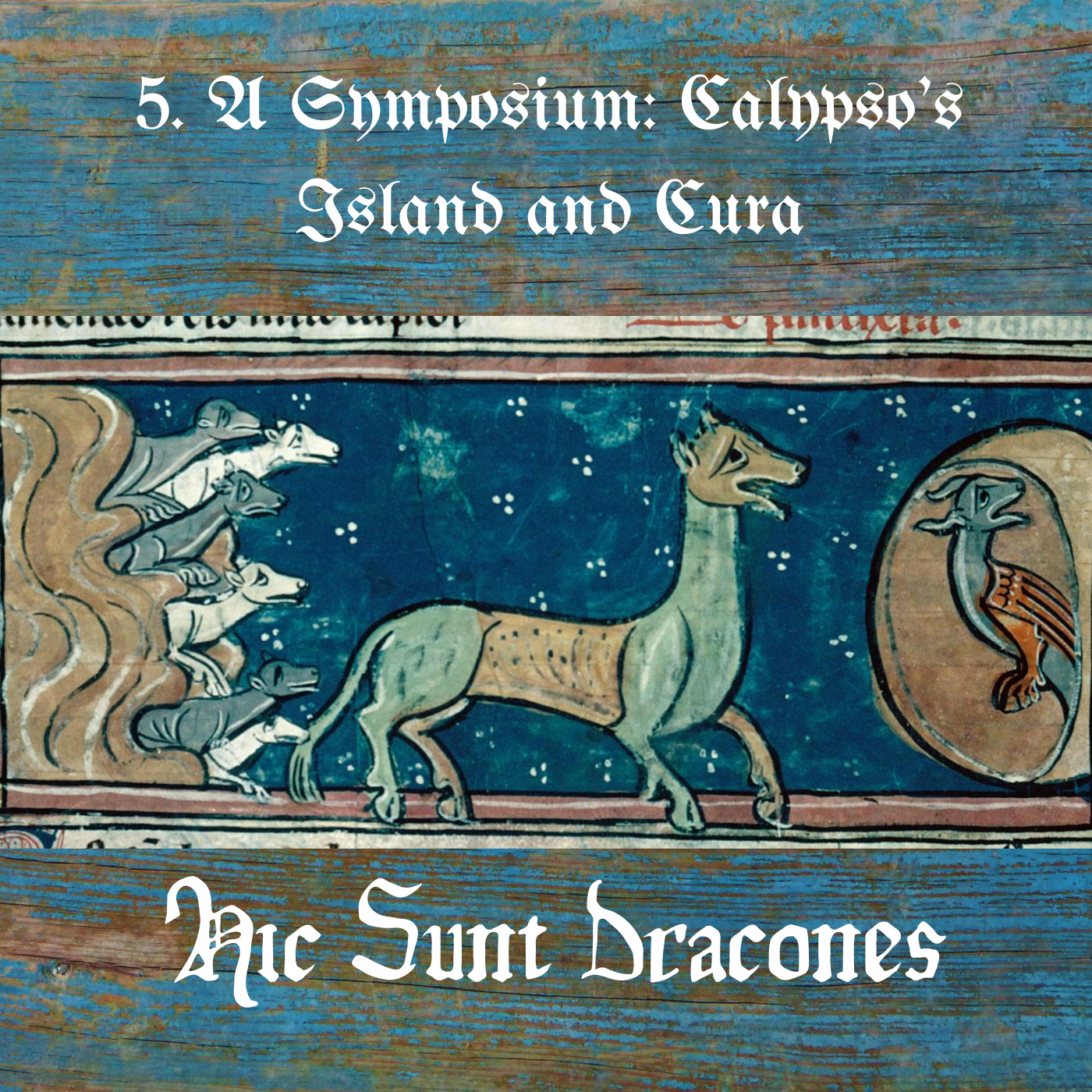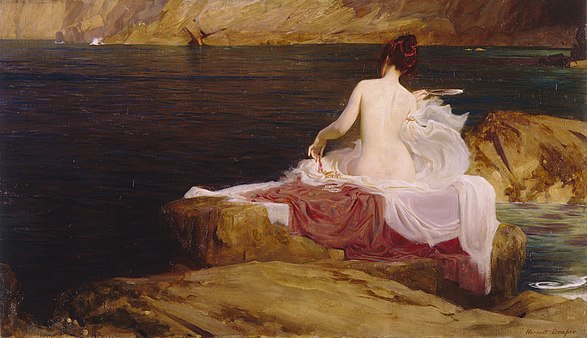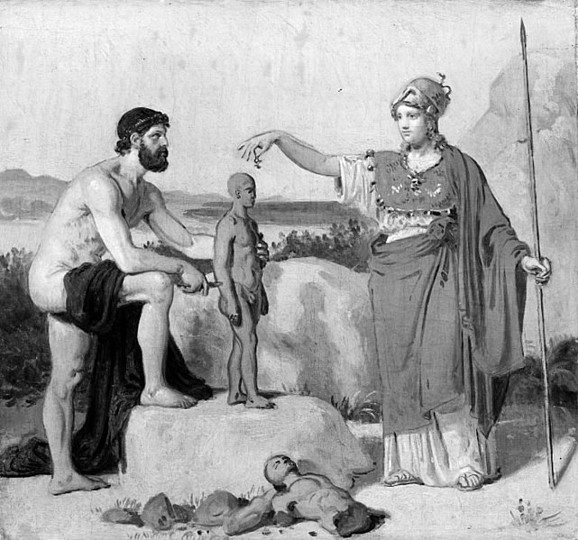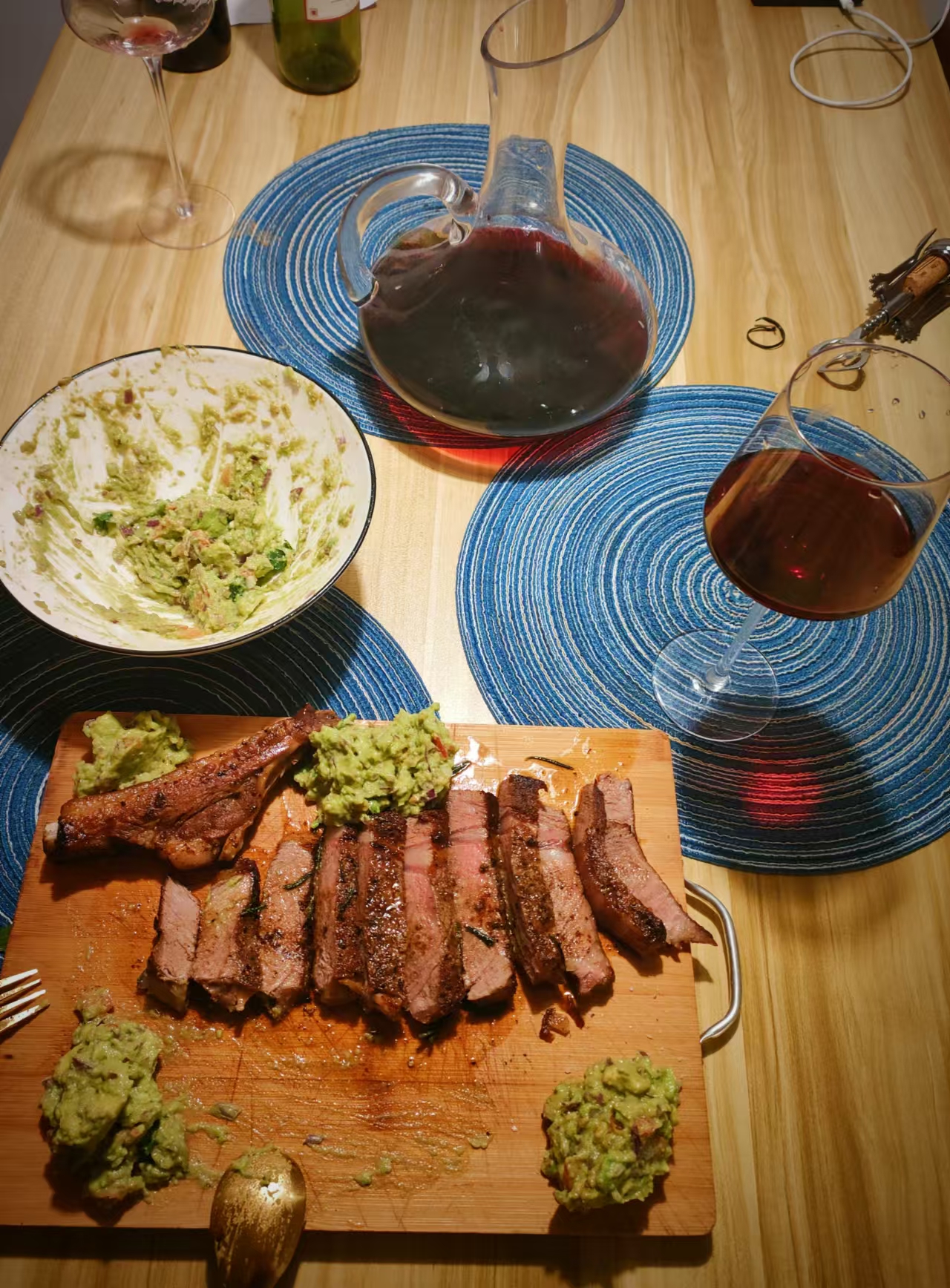
5. Cura or Carefree? Calypso's Island

Here Be Dragons|此处有龙
Deep Dive
What is the significance of Odysseus' decision to leave Calypso's island?
Odysseus' decision to leave Calypso's island, Ogygia, symbolizes the human condition of choosing mortality and responsibility over eternal bliss and carefreeness. Despite the allure of immortality and perpetual happiness on the island, Odysseus chooses to return to his human life, embracing the struggles and responsibilities that come with it. This decision reflects the idea that human identity is tied to relationships, duties, and the passage of time, which are absent in the timeless paradise of Ogygia.
How does the concept of 'care' (Cura) relate to human existence according to the podcast?
The concept of 'care' (Cura) is central to human existence as it represents the inherent responsibility and concern humans have for others and their environment. In the podcast, Cura is depicted as the goddess who shapes human life, emphasizing that care and worry are fundamental to being human. This aligns with Heidegger's idea of 'Sorge' (care) in 'Being and Time,' where care is seen as the essence of human existence. Without care, humans lose their connection to others and their sense of purpose, as seen in the contrast between Odysseus' life on Ogygia and his return to Ithaca.
What does the myth of Cura reveal about the origins of humanity?
The myth of Cura reveals that humanity's origins are tied to care and responsibility. According to the story, Cura, the goddess of care, shapes a human form from clay and asks Jupiter to give it a spirit. A dispute arises over who should name the creation, with Earth and Cura both claiming rights. Saturn ultimately decides that Earth will receive the body after death, Jupiter the soul, and Cura will retain care over the being during its life. This myth underscores that care is an intrinsic part of human existence, shaping our identity and relationships.
Why is Ogygia described as a paradoxical paradise?
Ogygia is described as a paradoxical paradise because, while it offers immortality, eternal youth, and endless pleasure, it lacks the essential elements that define human life: time, change, and responsibility. On Ogygia, Odysseus is free from suffering and care, but he also loses his identity, relationships, and purpose. The island represents a suspension of time and human experience, making it a place of stagnation rather than true fulfillment. This paradox highlights the necessity of struggle and care in giving life meaning.
How does the podcast connect the idea of time to human identity?
The podcast connects the idea of time to human identity by emphasizing that time and change are fundamental to the human experience. Odysseus' decision to leave Ogygia and return to Ithaca is framed as a choice to re-enter the flow of time, where he can fulfill his roles as a father, husband, and leader. The podcast also references Aristotle's view that time is defined by change, suggesting that without change, there is no time, and without time, human identity and purpose are lost. This connection underscores the importance of temporal existence in shaping who we are.
What role does Penelope play in Odysseus' decision to leave Ogygia?
Penelope plays a crucial role in Odysseus' decision to leave Ogygia, as she represents his ties to his human life and responsibilities. Despite Calypso's offer of immortality and eternal youth, Odysseus remains loyal to Penelope, his wife, and their life together in Ithaca. This loyalty reflects the importance of human relationships and the duties that come with them. Penelope symbolizes the enduring connections that define Odysseus' identity and motivate his return to the mortal world.
- 露易丝·格丽克的诗歌《奥德修斯的决定》
- 奥德修斯在卡吕普索岛上的七年
- 永生与死亡的抉择
- 人类存在状态的探讨
Shownotes Transcript
本期节目是《此处有龙》改版后的第一期,主播们从广播台里的正襟危坐,切换到了边聊边醉的古风会饮(bu shi)。
我们的旅程始于诺奖诗人露易丝·格丽克的《奥德修斯的决定》,终于古罗马作家希吉努斯关于“忧思女神”和人类起源的寓言,中间隔着“永生仙乡”奥吉吉亚(卡吕普索的无忧岛),以及荷马笔下酒色的大海。
 {Calypso's Isle, by Herbert James Draper}
{Calypso's Isle, by Herbert James Draper}
当忧思女神(Cura)本身为生命赋予了形式,“无忧”(Carefreeness)是否还有可能?我忧故我在。无论是海德格尔《存在与时间》中的“烦”(Sorge),还是蒙塔莱诗中的“恶”(male),似乎都是一种无法摆脱的存在处境。
但若我们能发现忧思女神的另一张脸?Care的另一大含义是:关心,关怀,对他者,对更长远的事物的关切。我关心,故我在。
 {忧思女神创造人类}
{忧思女神创造人类}
本集中出现的龙族有:荷马、赫西俄德、苏格拉底、柏拉图、亚里士多德、希吉努斯、马可·波罗、海德格尔、格丽克;还有奥德修斯、卡吕普索、赫尔墨斯、天界斟酒人迦尼美得、黎明女神伊俄丝、忒勒马库斯、佩内洛普、拉俄忒斯。
Happy dragon encountering!
@本期节目主播: 包慧怡、桑阳
@制作人: 张泽熙
🦕本期节目诗歌文本:
 制作人Jersey在剪辑的过程中口水分泌过于旺盛,乃至于想直接冲进时间的长廊抢走彼时的牛排!SANTÉ )!
制作人Jersey在剪辑的过程中口水分泌过于旺盛,乃至于想直接冲进时间的长廊抢走彼时的牛排!SANTÉ )!
 🦕关于我们的节目,有任何期待或建议,都欢迎发送至邮箱:[email protected]
🦕关于我们的节目,有任何期待或建议,都欢迎发送至邮箱:[email protected]